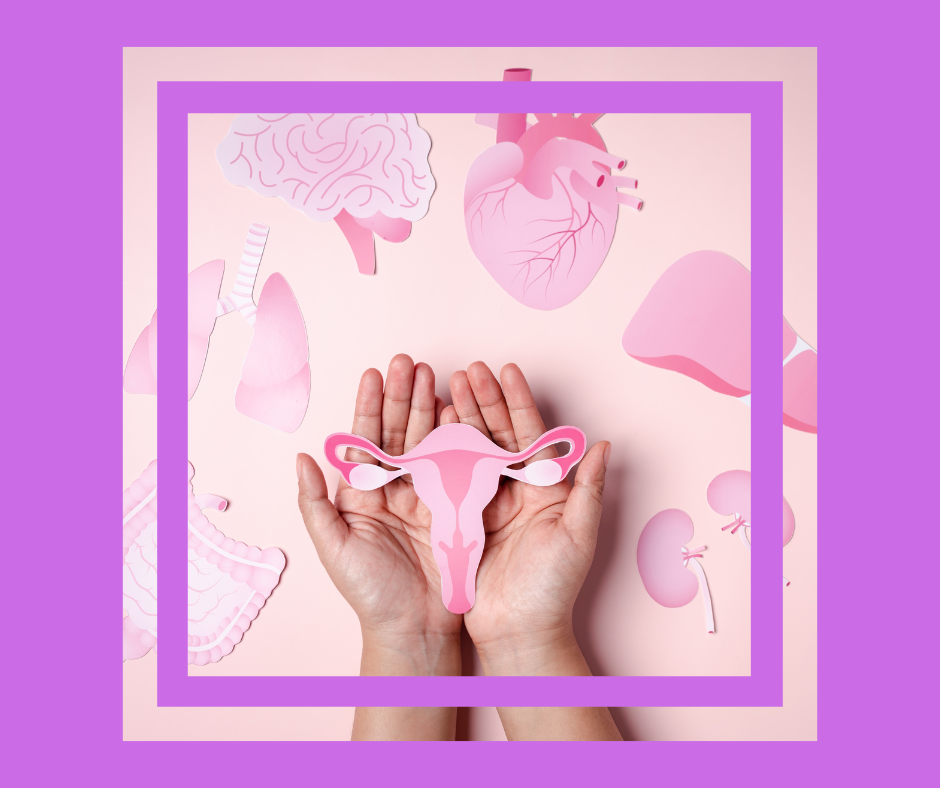Embracing Nature: The Science Behind Choosing Natural Solutions for Menopause and Aging

Embracing Nature: The Science Behind Choosing
Natural Solutions for Menopause and Anti-Aging
I believe that menopause and aging are a normal part of a woman’s life and not a condition to be treated only medically. When we treat all women the same with HRT or Biodentical Hormones, we ignore each woman's uniqueness. This ends up helping some women, but harming others.
There are some health recommendations that are similar for all women and there are many that are specific to each. Let’s find what your unique body, mind and spirit need and nourish it so you can manifest your highest purpose and potential at this glorious stage of life.
This blog post explores the compelling reasons backed by research on why women are increasingly turning to natural solutions for a smoother transition – from menopause and beyond.
Introduction: Menopause and aging are inevitable phases of a woman's life, yet the approach to managing them has evolved. Hormonal Harmony: Research indicates that certain natural remedies can support hormonal balance during menopause, alleviating symptoms like hot flashes and mood swings. Herbs such as black cohosh and red clover have shown promising effects in clinical studies.
- Reduced Side Effects: Contrary to some pharmaceutical options, natural solutions often come with fewer side effects. Studies suggest that women experience milder reactions when using plant-based and nutrient based alternatives, such as herbal and whole food supplements and nutrient dense food, contributing to a better quality of life during menopause.
- Bone Health: As women age, maintaining bone density becomes crucial. Research supports the use of natural remedies like calcium-rich foods, vitamin D supplements, and weight-bearing exercises to promote bone health and reduce the risk of osteoporosis. Be sure your Vitamin D levels are optimal though testing.
- Cognitive Well-being: The hormonal changes during menopause can impact cognitive function. Scientific studies propose that incorporating omega-3 fatty acids, found in abundance in sources like flaxseed and fish oil, may support brain health and reduce the risk of cognitive decline. Other mind-body practices have also shown significant promise in this regard, such as Yoga, Tai Chi, HeartMath and other Meditative practices.
- Cardiovascular Support: Heart health is a concern for women post-menopause. Research suggests that adopting a natural lifestyle, including a balanced diet, regular exercise, and stress-reducing practices, can positively influence cardiovascular well-being.
- Sustainable Long-term Benefits: Unlike short-term relief provided by some medications, natural solutions often offer sustainable, long-term benefits. Research underscores the significance of lifestyle choices, including a plant rich diet and regular physical activity, in promoting overall health during the aging process.
- A 2010 review of 21 papers assessed mind and body therapies for menopausal symptoms. The researchers found that yoga, tai chi, and meditation-based programs may be helpful in reducing common menopausal symptoms including the frequency and intensity of hot flashes, sleep and mood disturbances, stress, and muscle and joint pain.
Conclusion: The shift towards natural solutions for menopause and aging is not merely a trend but a well-founded choice supported by scientific research. This blog post encourages women to explore these options, fostering a holistic approach to well-being that aligns with the body's natural processes. Embrace the science-backed journey towards a healthier, more fulfilling menopausal and anti-aging experience.
A Few Supporting Research Articles:
Innes KE, Selfe TK, Vishnu A. Mind-body therapies for menopausal symptoms: a systematic review. Maturitas. 2010 Jun;66(2):135-49. doi: 10.1016/j.maturitas.2010.01.016. Epub 2010 Feb 18. PMID: 20167444; PMCID: PMC3031101.
Min, J., Rouanet, J., Martini, A.C. et al. Modulating heart rate oscillation affects plasma amyloid beta and tau levels in younger and older adults. Sci Rep 13, 3967 (2023). https://doi.org/10.1038/s41598-023-30167-0 From the abstract: Alzheimer’s disease (AD) incidence rates increase exponentially with age1. Why does aging increase AD risk so much? One potentially critical factor has been given little attention. During aging, the balance between the sympathetic and parasympathetic branches of the autonomic nervous system shifts2,3. As people get older, parasympathetic activity declines, as indicated by decreases in heart rate variability (HRV)2. At the same time, sympathetic (or noradrenergic) activity increases, as indicated by increases in sympathetic nerve activity and circulating noradrenaline levels4. Age-related increases in noradrenergic activity and decreases in parasympathetic activity are associated with AD-related conditions including sleep disorders, diabetes, and heart disease5.
Sarris J, Byrne GJ. A systematic review of insomnia and complementary medicine. Sleep Med Rev. 2011 Apr;15(2):99-106. doi: 10.1016/j.smrv.2010.04.001. Epub 2010 Jun 8. PMID: 20965131.